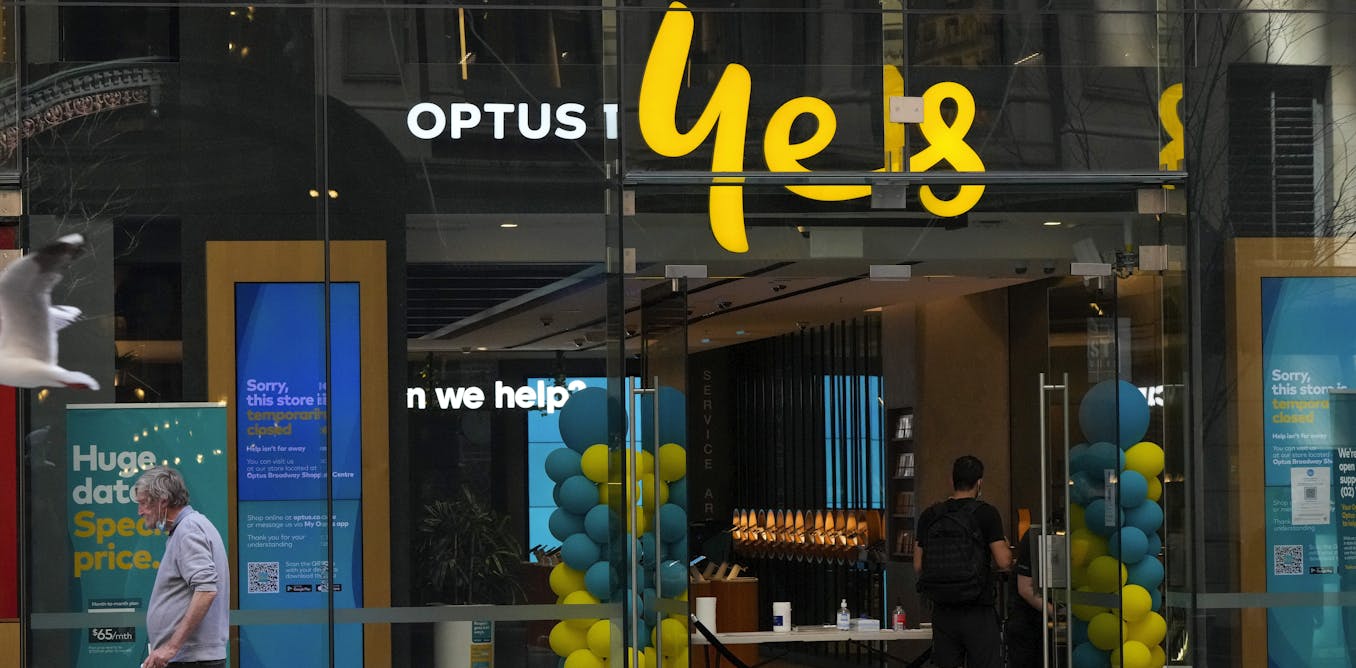
Three people have died after a botched Optus network upgrade on Thursday prevented around 600 emergency calls to Triple Zero across South Australia, Western Australia and the Northern Territory.
South Australian police have confirmed the deaths linked to the outage – which Optus only revealed to the public, emergency services and state/territory leaders on Friday evening at a press conference – included an eight-week-old baby from Gawler West, about 43 kilometres north of Adelaide, and a 68-year-old woman from the Adelaide suburb of Queenstown. The third person who died was from Western Australia, but no further details have yet been released.
The outage – plus Optus’s delayed response to it – has sparked fury and condemnation. “I have not witnessed such incompetence from an Australian corporation in respect to communications worse than this,” South Australian premier Peter Malinauskas said.
This isn’t the first time a blunder by Optus has meant people in crisis have been unable to call emergency services. So what exactly went wrong? And what could be done to prevent a similar tragedy occurring again?
What happened?
Telecommunications companies routinely conduct network upgrades. Ideally, the upgrades should include a suite of tests performed beforehand as well as immediately afterwards. These tests can quickly identify any network or system problems. If a problem is identified, the upgrade can be reversed. Alternatively, what’s known as a failover system can be used if the upgrade will take some time to implement. A failover system is one that has not been upgraded.
On Thursday, Optus conducted a network upgrade. In the process of doing so it failed to identify a technical failure, which impacted Triple Zero calls.
Normal calls were still connecting during this Triple Zero outage. That’s because Triple Zero is a cooperative service that involves telecommunications companies, as well as the governments and emergency services in each state or territory. The Triple Zero core components are implemented separately, meaning any issue with them does not affect calls on the normal network.
The Telecommunications (Emergency Call Service) Determination 2019 sets out obligations on telecommunications companies to ensure they have arrangements in place for dealing with emergency calls. For example, they must provide access to the Triple Zero call service free of charge. They must also have what’s known as a “camp-on” mechanism in place. This allows your mobile phone to connect to another network to make Triple Zero calls if your network has failed.
On Friday afternoon, Optus CEO Stephen Rue apologised to the families of the people who died, as well as the broader community, for the outage.
“You have my assurance that we are conducting a thorough investigation and once concluded we will share the facts of the incident publicly”.
Not the first time
That might sound familiar. That’s because this isn’t the first time a telecommunications blunder of this kind has happened.
On March 1 2024, a Telstra network disruption resulted in 127 calls to Triple Zero failing – thankfully without fatal consequences. In that case, the Australian Communications and Media Authority (ACMA) fined Telstra A$3 million.
On November 8 2023, Optus was responsible for another network meltdown which prevented more than 2,100 people from accessing Triple Zero. Optus also failed to conduct 369 welfare checks on people who had attempted to make an emergency call during the outage.
Nobody died as a result of that failure either. Optus, however, was hit with a A$12 million fine by the ACMA for breaching emergency call regulations. It was also subject to a formal review, commissioned by the Australian government and completed in April, which made 18 recommendations to prevent similar incidents occurring again.
These recommendations included establishing a “Triple Zero custodian” who would have oversight and overarching responsibility for the efficient functioning of the Triple Zero ecosystem. They also included more clearly and explicitly articulating precisely what is expected of network operators in regard to ensuring calls are delivered to Triple Zero, and requiring telecommunications companies to share real time network information detailing outages with emergency services and other relevant parties.
Following the most recent outage, federal Communications Minister Anika Wells said the Australian government has “accepted all recommendations from the previous Optus Outage Review and has fully implemented 12 of the 18 recommendations, with the remaining six underway”.
But the fact three people are dead because they couldn’t reach Triple Zero due to yet another network outage highlights the urgent need for more action.
Encouraging all telcos to lift their game
The federal government should consider even stronger minimum performance standards for telecommunications companies that provide the foundation for enforcement. These standards could stipulate, for example, minimum download and upload speeds. They could also require telecommunications companies to make a public notification about an outage within a specified time period – ideally as soon as they themselves are aware of it.
There should also be a mandated requirement for telecommunications companies to establish reasonable engineering practices to help prevent updates taking out part or the whole network. These practices could include automated testing before and after updates are carried out.
And while the ACMA will soon launch an investigation into this recent outage, the Australian Competition and Consumer Commission could also investigate it. Specifically, the commission could look at whether the actions of Optus amounts to unconscionable conduct, and issue more severe fines.
This may serve to encourage Optus and other telecommunications companies to lift their game and better protect public safety.


